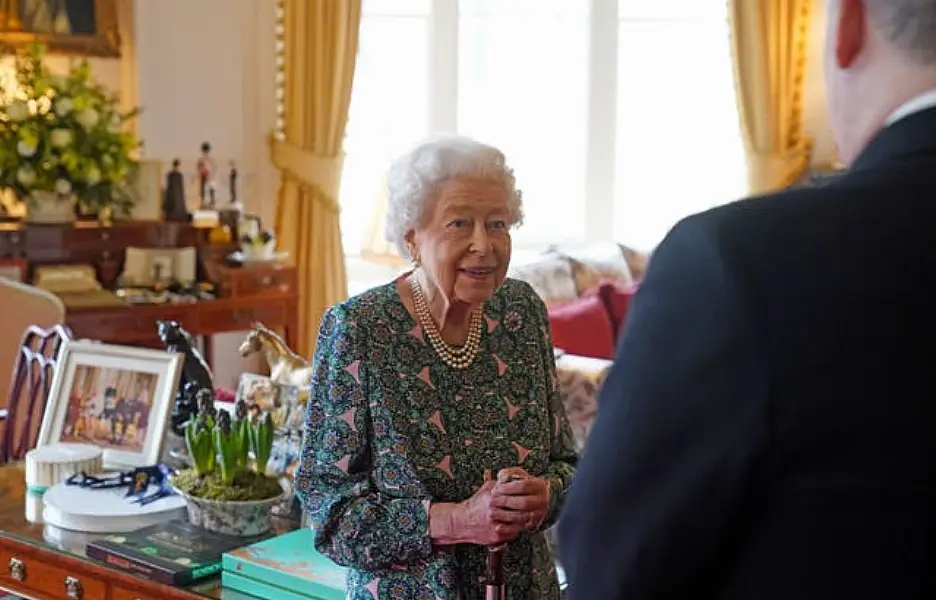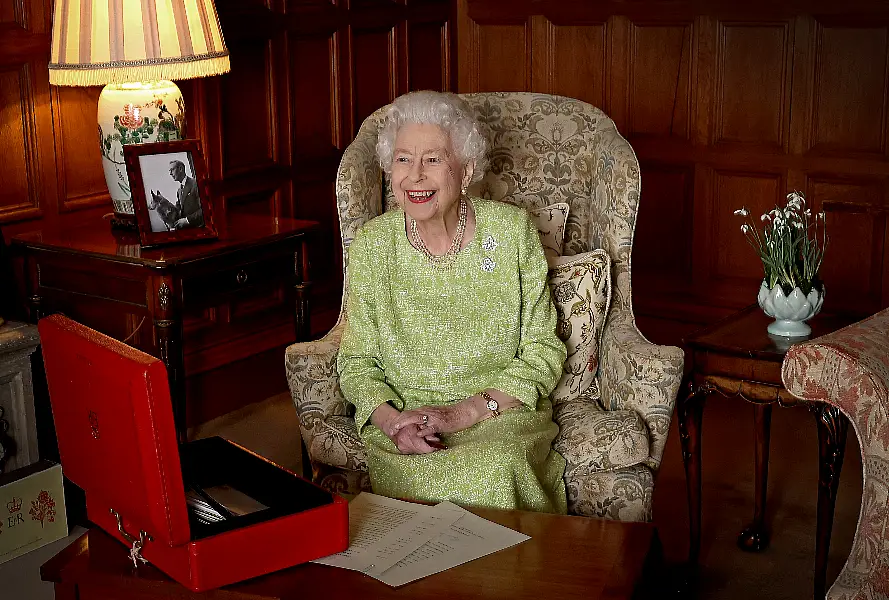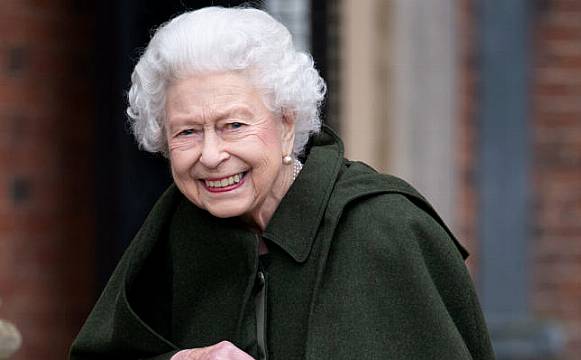Britain's Queen Elizabeth could be given recently approved anti-viral drugs after testing positive for Covid-19.
The 95-year-old monarch was said to be experiencing “mild” cold-like symptoms after receiving a positive test result on Sunday.
It is expected she will engage in “light duties” and will be looked after at Windsor Castle by the Medical Household - medical staff who are part of the Royal Household - headed by Professor Hugh Thomas.
While it is understood she has been fully vaccinated, including a booster jab, which affords a high degree of protection against severe infection, the queen could be prescribed one or more of a number of anti-viral medications designed to protect the most vulnerable.
Professor Paul Hunter, an infectious disease expert at the University of East Anglia, said someone in their 90s would be at increased risk of severe disease compared to younger people, even if they have been triple vaccinated.
Nearly all severe Covid infections begin with mild symptoms, he explained.

Prof Hunter told the PA news agency: “With somebody in their mid-90s, even if they’re triple vaccinated you are concerned that they could gradually deteriorate over coming days and so you would need to keep a very careful eye on them.
“You would, I think, almost certainly be considering giving anti-viral drugs, of which there are a number around at the moment.”
He added: “If you do get them early enough it does reduce the risk of severe disease developing so I would imagine any doctor for a patient in their 90s would be considering giving these antivirals out.”
The drugs include Ronapreve, approved in the UK in August 2021, which contains types of proteins called “monoclonal antibodies”, and has been shown to reduce the risk of hospital admission or death by 70 per cent in those with mild to moderate Covid-19.
I’m sure I speak for everyone in wishing Her Majesty The Queen a swift recovery from Covid and a rapid return to vibrant good health.
— Boris Johnson (@BorisJohnson) February 20, 2022
Advertisement
Another option could be Molnupiravir, a medicine approved in the UK in November 2021, which clinical trials suggests reduces the risk of hospital admission or death by 30 per cent.
Royal physicians may choose to prescribe Paxlovid, developed by Pfizer and approved by the UK medicines watchdog in December 2021, which has been shown to be around 90 per cent effective in preventing the need for hospital admission.
Other drugs, Prof Hunter said, included other antivirals, Sotovimab, Remdesivir and Dexamethasone.
He added: “Those drugs need to be given quite early, within three days for them to have the best impact with the exception of Dexamethasone.”
Well wishes
The queen’s diagnosis comes as the UK government plans to lift all remaining Covid restrictions, including the legal requirement for people who test positive for Covid to self-isolate, in the coming days.
British prime minister Boris Johnson wished the queen a “rapid return to vibrant good health”.
He said in a tweet: “I’m sure I speak for everyone in wishing Her Majesty The Queen a swift recovery from Covid and a rapid return to vibrant good health.”
Labour leader Keir Starmer tweeted: “On behalf of myself and the whole of @UKLabour, wishing Her Majesty The Queen good health and a speedy recovery.
“Get well soon, Ma’am.”
British chancellor Rishi Sunak, foreign secretary Liz Truss and home secretary Priti Patel were among other politicians wishing the queen well on Twitter.

Concerns for the queen will be heightened in Britain given her age and recent health scare, but it appears the head of state is determined to carry out what tasks she can despite contracting the virus.
It is likely the queen will be working from her red boxes, sent to her every day and containing policy papers, foreign office telegrams, letters and other state papers from UK government ministers and Commonwealth representatives that have to be read and, where necessary, approved and signed.
The diagnosis follows a string of Covid cases among the royal family and the queen’s Windsor Castle team, with Prince Charles meeting the monarch the week he tested positive, and his wife Camilla, the Duchess of Cornwall, also isolating after contracting the virus.
The shock announcement was made just a few weeks after Britain’s longest-reigning monarch reached her historic Platinum Jubilee of 70 years on the throne on February 6th.







